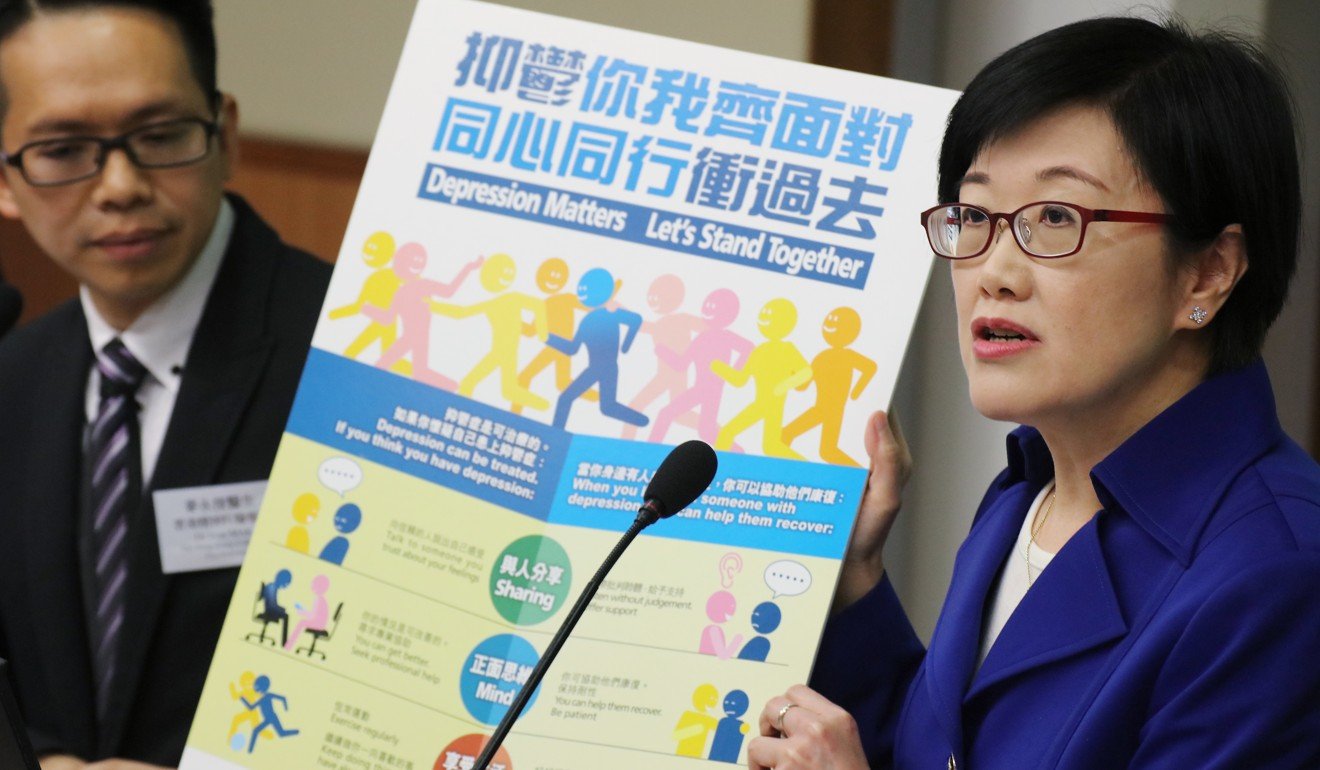
Hong Kong’s mental health policy must focus on meaningful lives without stigma
Samson Tse and Chung Ka-Fai urge that Hong Kong’s new Advisory Committee on Mental Health and policymakers focus on strengths-based and family-based recovery, as well as community support, so that recovered patients have access to meaningful work and social lives

Following recommendations made by the Mental Health Review Report in March, the Hong Kong government announced the establishment of an Advisory Committee on Mental Health last month.
The report said, “The review also reaffirms the importance of strengthening community support … enhancing the capacity of health-care professionals at the primary care level, developing public-private partnership, [and] providing more multidisciplinary support in the community as the long-term strategy in the development of mental health policy.”
Recovery is the common vision of approach to be adopted by the Hospital Authority, Social Welfare Department and NGOs in providing services to patients with severe mental illness. The mission of this approach is “to facilitate recovery … by providing [such patients] and their families with personalised, holistic, timely and coordinated services that meet their medical, psychological and social needs.”
A study of challenges faced by mental health sectors in the US, UK and Hong Kong illustrates how patients are supported in recovery in different jurisdictions.
In the US, mental health services remain inadequately funded, even though it has been almost 10 years since legislation mandated that these be funded on a par with physical health services. Only one out of three people with mental health conditions will receive treatment. On the positive side, shared decision-making between professionals and clients, and collaborative, person-centred care is taking off, along with growth in a peer support workforce.

Mental health care in Hong Kong falls woefully short amid social stigma and lack of policy direction
In the UK, major concerns include difficulties in accessing support for young people with mental health issues, the negative experiences of ethnic minority patients, and the continued social exclusion of people living with mental ill-health. Job rates among them are just 10 per cent, compared with 80 per cent in general. As many as 300,000 people with long-term mental health issues lose their jobs each year, a much higher rate than for those with physical health conditions.
The newer understanding of ‘recovery’ means living well, symptoms or not
In Hong Kong, major challenges are a lack of mental health professionals, long waiting times and difficulties in accessing psychological services or counselling in the public system, a lack of community-based support and carers, and stigma and discrimination.
The old understanding of “recovery” related to getting better, having no symptoms and being just like other people. The newer understanding of “recovery” means living well, symptoms or not. This means we no longer only focus on the treatment of symptoms but also emphasise supporting people to access things like decent housing, a meaningful occupation, social and intimate relationships, and inclusive communities, and developing hope, resilience and agency.
The World Health Organisation’s Mental Health Action Plan 2013-2020 locates recovery in a human rights space, placing much greater emphasis on social and citizenship aspects, where individuals can participate fully in society and at work, and are free from stigma and discrimination.

But while China, including the Hong Kong SAR, the UK and US have all ratified the Convention on the Rights of Persons with Disabilities, the mental-health systems in these countries are all non-compliant with this human rights legislation.
Around the globe, the aspects of recovery-oriented services that seem to be increasingly adopted are the roles of peers and the need for services to go beyond symptom reduction to the restoration of a personally meaningful life. Much work remains to be done in these two areas.
What has yet to be undertaken in practice is the emphasis on strengths-based and family-oriented treatment.
There is also a need for significant funding to provide community-based support, so that people with long-term conditions can still succeed in school, at work, and within their homes and communities.
Samson Tse is professor and convenor of Mental Health and Social Policy Group at the Faculty of Social Sciences, the University of Hong Kong. Chung Ka-Fai is clinical associate professor at the Department of Psychiatry of HKU. Professor Larry Davidson of Yale University and Professor Mike Slade of the University of Nottingham also contributed to the article